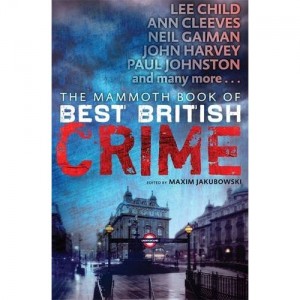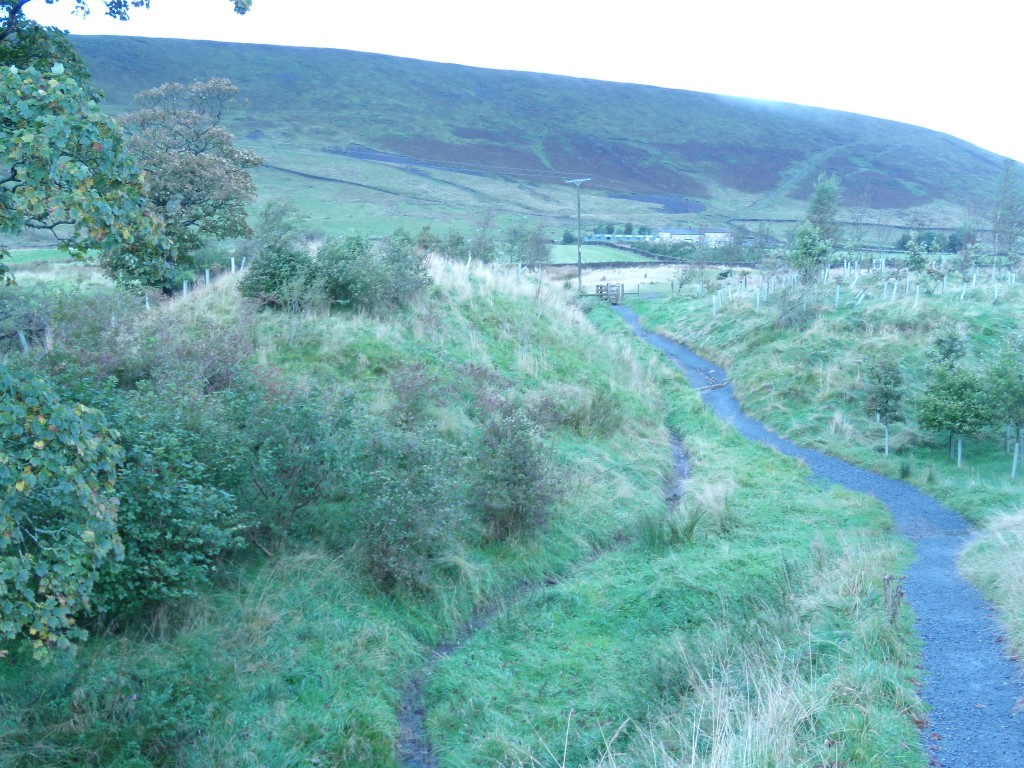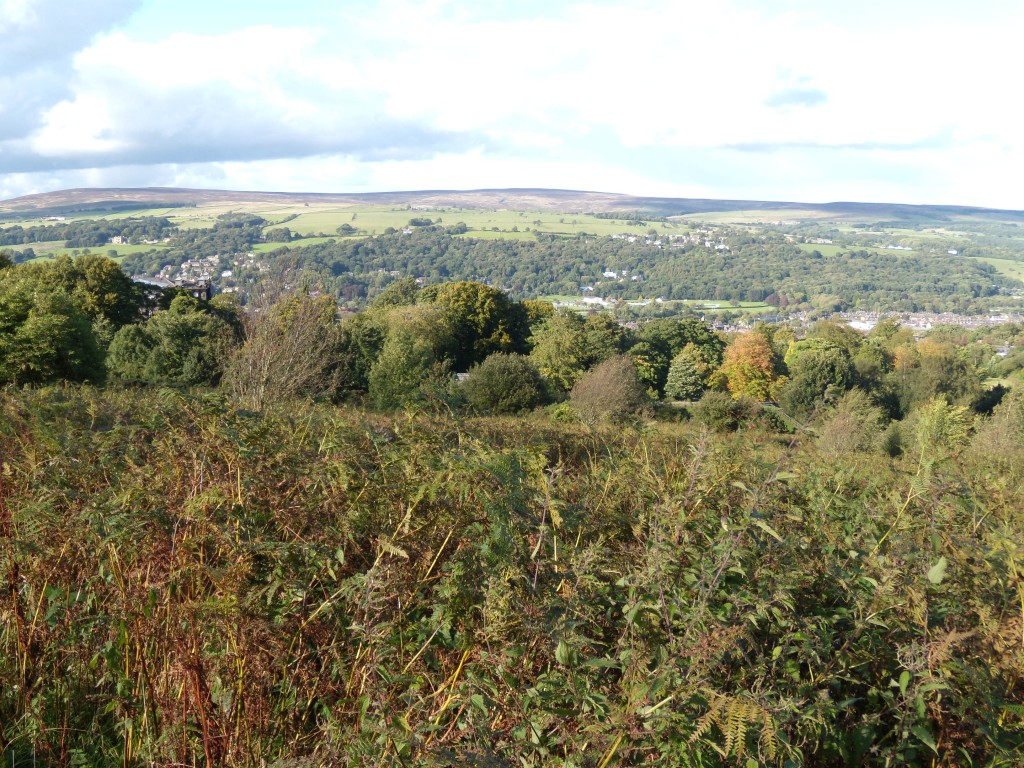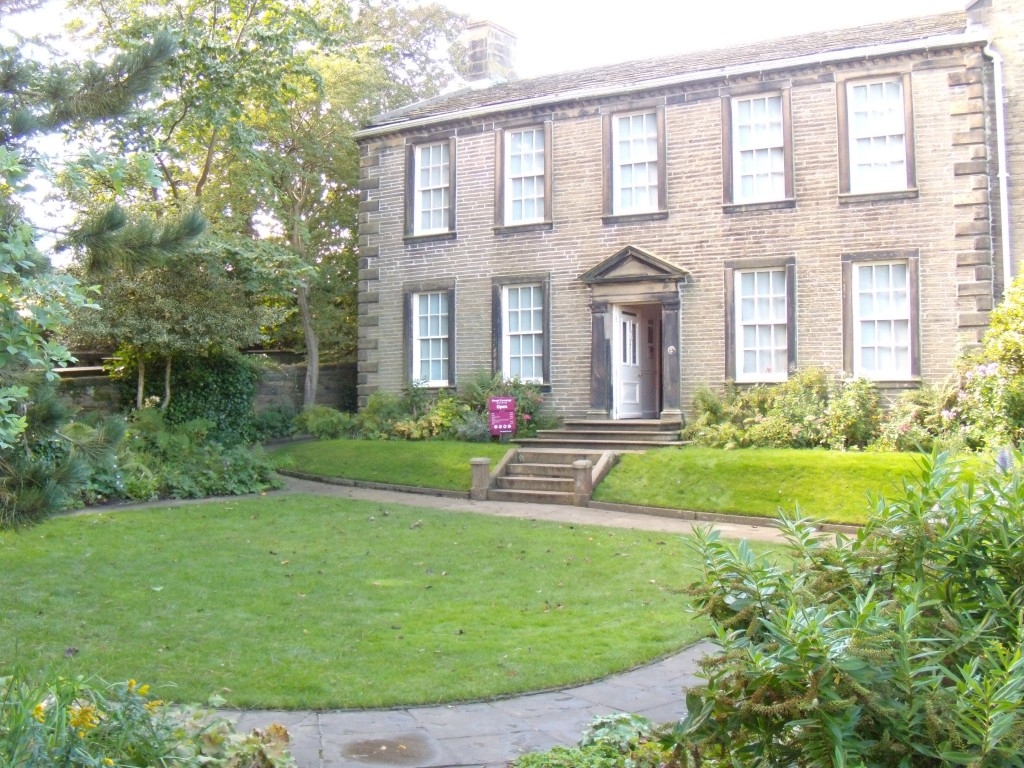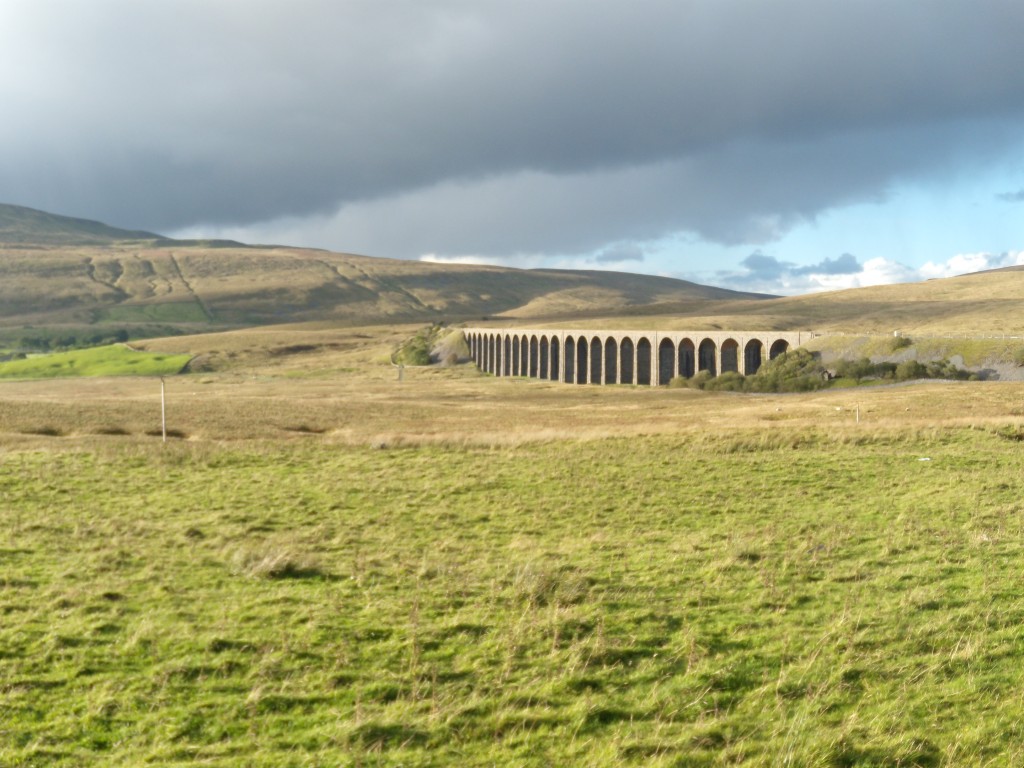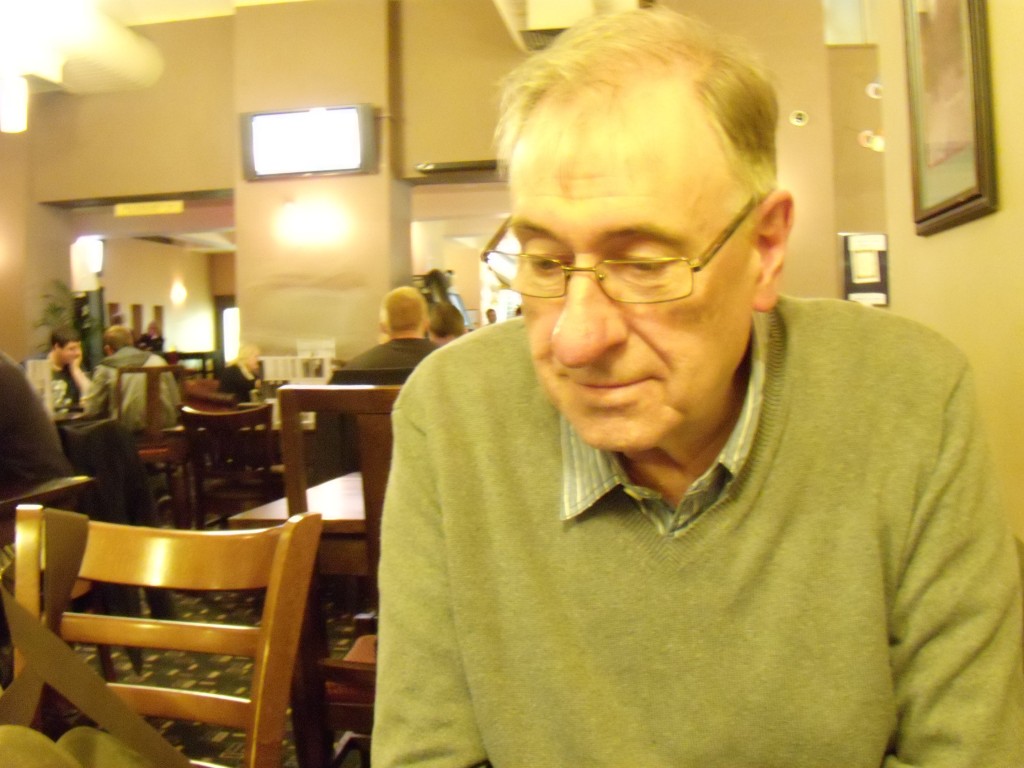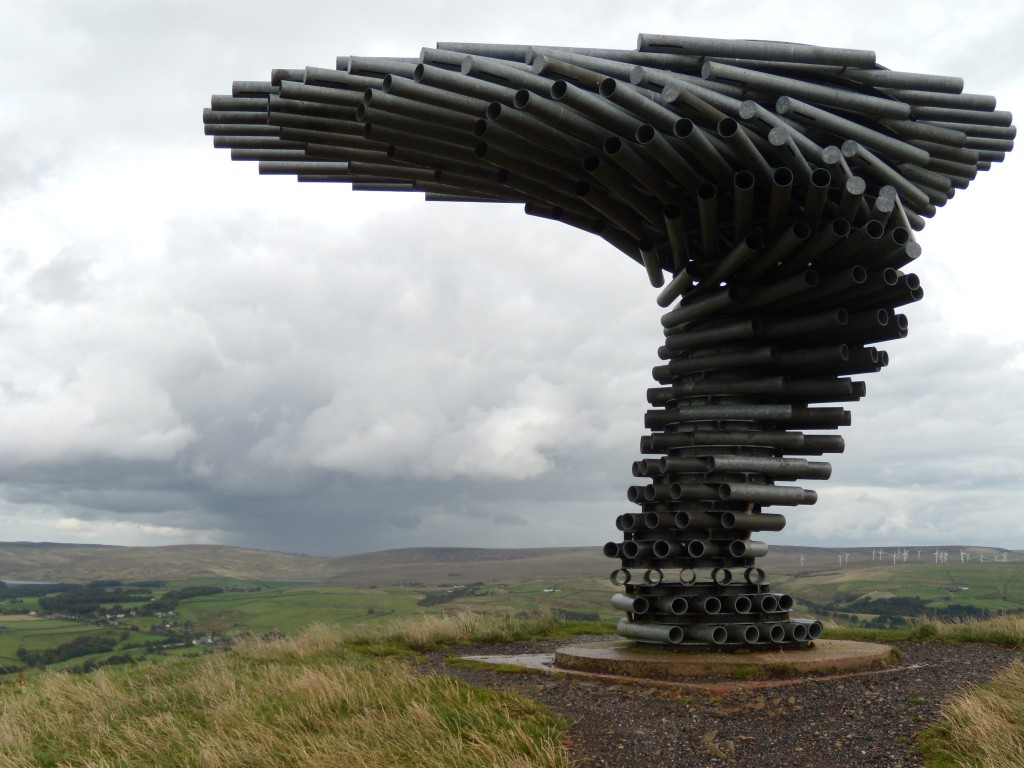I’ve seen a few people blogging on this topic over the past week or so, and as a lover of lists I can’t resist posting my own. Actually I’m going to be a bit of a cheater and have six books instead of five. (Who came up with that paltry figure five, anyway?) The cover images I’ve chosen represent the covers of the editions as I first encountered them. In a very real way, these books chart my journey towards becoming a writer.
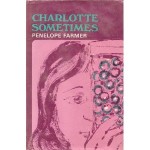 1) Charlotte Sometimes, by Penelope Farmer.
1) Charlotte Sometimes, by Penelope Farmer.
I can’t remember exactly how old I was when I first read this – eight, maybe, ten? – but I do know that although I never owned my own copy of the book I must have read it at least a dozen times. It was one of those books I would take out from the library on a regular basis, a book I never seemed to tire of and thought about a lot, even outside of those times when I was actually in the process of reading it.
It was also one of my first introductions to the idea of fantastic literature.
I had no idea then that there was such a thing – I didn’t really understand the concept of genre at all until I was in my twenties, there were simply books, books that I loved. All I knew was that this book – about a girl who swaps places in time with her spiritual twin – compelled me, obsessed me, and that I was desperate to read other books that were like it. In time I did. The books that took over my brain during my later childhood and very early adolescence were all novels of the fantastic: Penelope Farmer’s kind-of prequel to Charlotee Sometimes, The Summer Birds, Rumer Godden’s A Doll’s House, Catherine Storr’s Marianne Dreams, Hilda Lewis’s The Ship that Flew, Phillippa Pearce’s The Shadow Cage, Diana Wynne Jones’s The Ogre Downstairs. Even now my heart clenches when I think about these books, which seemed to chime in precisely with the way I was beginning to see the world, and that gave me my first very tentative sense of what it might mean to be a writer. As I grew a little older I discovered Alan Garner’s The Owl Service, Peter Dickinson’s brilliant ‘Changes’ trilogy and most importantly of all John Christopher’s The White Mountains, The City of Gold and Lead and The Pool of Fire. (I was totally crazy about the tripods, and read the trilogy – always in order! – as often as I read Charlotte, perhaps more.) The next step up was Golding’s Lord of the Flies.
It’s interesting to look back on these reading choices now and see how important they truly were and how they still matter. The novels I graduated on to – the Changes, the Tripods – are all books that describe and extrapolate an external catastrophe, a situation that is forced on to the novel’s protagonists from without. My preoccupation with what were effectively dystopian SFF novels clearly signalled my nascent awareness of and interest in the world outside and the politics that governed it, the concepts of freedom and change. These interests intensified as I grew older. And yet the earler fantasy books, classic works of fiction by Farmer and Wynne Jones, which deal more with internal issues of identity, freedom of thought and creative expression, contain within them many of the themes that are now central preoccupations within my own writing.
This group of mid-century British women who wrote what I like to call realworld fantasy (the type of fantasy that has always interested me most) – Farmer, Pearce, Uttley, Storr, Godden, Nesbit, Gardham, Bawden, Wynne Jones – remain a hugely important and fascinating group of writers, who have not yet been given the full weight of critical attention they deserve.
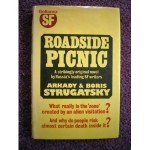 2) Roadside Picnic, by Arkady and Boris Strugatsky.
2) Roadside Picnic, by Arkady and Boris Strugatsky.
I wish I had a clearer memory of what it was, exactly, that made me start reading SF. I suppose it could have been my obsession with Doctor Who, but then I was kind of obsessed with Doctor Who – I knew I needed these kind of stories – before I even knew it existed. I studied Brian Aldiss’s landmark Penguin Anthology of Science Fiction for ‘O’ Level and was crazy about it, but – unlike most of the other kids in my class – I was already reading speculative fiction by then, anyway.
However and whenever it happened, what I do know is that from the age of about thirteen right up until I went to uni I read a lot of SF, more SF than anything else by miles, and most of it in the form of Gollancz ‘yellowjackets’ – my local library had a lot of them, and thoughtfully placed them all together on a single shelving unit. Aldiss, Pohl, Watson, Shaw, Clarke, Heinlein, Zelazny, Silverberg, Budrys, Azimov – I read them all. I loved Arthur Herzog’s catastrophe novels, Edmund Cooper’s weird kind of hippies-in-space stories, Hugh Walters’s series of space adventures for young adults. In the bookcase at the top of our stairs I discovered my mum’s odd little stash (odd because it was the only SF she ever read) of John Wyndham novels and promptly became obsessed with them, too. Towards tbe latter end of this period I discovered Orwell’s 1984, Zamyatin’s We, and Huxley’s Brave New World. I suppose you could say that it was these three novels that formed the cornerstone of my next stage of reading, but the book, the wonderful book that I carried over from this time and that still remains an inviolate touchstone for me is Roadside Picnic. I read everything I could find by the Strugatskys – I’d just started to discover Russian literature and I found the concept of Russian SF hugely exciting – but Roadside Picnic was for me and remains the most achieved and the most timeless of their remarkable works. It did things with narrative structure and point of view that I’d not encountered before. It described an alienated, oddly gifted, embittered and ocasionally ruthless anti-hero who was very much my kind of protagonist. It had some gloriously weird shit in it – the detritus that litters the Zone has never lost its magic for me – and yet it never felt the need to explain it, or explain it away. The stuff was just there, the central thrust of the novel remained with the characters, how they chose to react to and adjust to threat and change within their world.
I love this book. If I could have written any classic work of science fiction, this would be it.
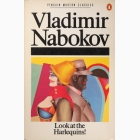 3) Look at the Harlequins! by Vladimir Nabokov.
3) Look at the Harlequins! by Vladimir Nabokov.
I read Russian at uni, and my experience of Russian literature has left a huge and lasting impact on my intellectual and creative life. For the space of about ten years, my whole way of thinking about literature was shaped and guided by the Russian classics, and I cannot imagine my mind without them in it, but, as the Strugatskys became the ‘carry-over’ from my Golden Age SF period, so the writer who became the ‘carry-over’ from my student days was Vladimir Nabokov.
I think every writer needs a ‘god’. Your ‘god’ figure should not just be someone you admire – you should have plenty of role models already – but a writer whose work you recognise as unassailable, as being so far in advance of your own potential achievements that even if you were to work your arse off for a hundred years you could never come close to matching it. The purpose of this is to keep you striving and to keep you humble.
Reading Nabokov has given me some of the most intense intellectual and artistic pleasure of my life. His facility with language – or should I stress languages – remains unmatched, yet he is also a very human writer, a writer whose main subject is god-in-art, the preservation of memory and the suspension of time through the creative act, which symbolises the essence of what it is to be human. There is indeed a great deal of humour and some of the most delicious literary irony ever in Nabokov, but I’ve always thought those who emphasise the ‘trickster’ element of Nabokov at the expense of the human are missing out badly.
It’s hard to pick a favourite among his novels because I love them all. From the Russian period my favourites are The Luzhin Defence (perhaps the greatest chess novel of all time), Glory and The Gift. The second half of his career is just one work of genius after another. Ada is perhaps his most ambitious work, Pale Fire is perhaps his crowning literary achievement, but I have such a soft spot for Look at the Harlequins, which in addition to its sparkling metafictions (it’s a cheeky and brilliant exercise in fictionalized autobiography) has an elegiac quality that makes me catch my breath and weep each time I read it.
4) The Affirmation, by Christopher Priest.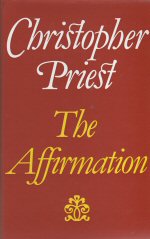
I more or less lost touch with SF while I was at uni. I first came across the work of Christopher Priest when I was in my mid-twenties, and a friend recommended me to read A Dream of Wessex.
I was completely blown away by it. In all my previous experience of SF, I’d never come across a book like it, had no idea that SF like this – set in a world that was recognisably ours, in a time that if not identical with our own still felt familiar – was being written now, and yet somehow it seemed to be precisely the kind of SF I was looking for. With its acute sense of place, its twisted intimacies, it was also distinctly British and unnervingly real – the novel’s method of subverting ordinary realism seemed a natural extrapolation of some of the qualities I’d previously admired in John Wyndham’s novels, the clarity of expression and force of intellect felt similar to some of what I’d found in Orwell. Yet there was more – a poetry, a mysteriousness – that was entirely its own.
I knew nothing about Christopher Priest, only that I wanted to read more of him. I’d never even heard of SF’s New Wave, and nor did I for another decade. But I did actively begin to seek out more novels by this amazing writer. The Affirmation, when I read it, seemed to me to be a kind of template for the perfect speculative fiction novel. Beautiful as a poem, provoking as a tract of philosophy, and in formal terms so perfectly realised I literally slapped the book’s cover with delight as I read the last (half) sentence.
The Affirmation was the book that properly opened my eyes to the infinite literary possibilities of speculative fiction, opening the gateway to my passionate rediscovery of SF in my thirties, and of writers such as M. John Harrison and J. G. Ballard, Michael Swanwick and Andrew Crumey. It was another six, seven years at least until I met its author.
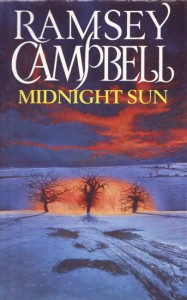 5) Midnight Sun, by Ramsey Campbell.
5) Midnight Sun, by Ramsey Campbell.
It was weird when I finally began to take my writing seriously, or rather I was. I knew – far more by instinct than by design – that what I wanted to do was write speculative fiction. In spite of the fact that I’d read more or less no SFF for a decade and more, it was, as it always had been, the speculative, the fantastic that compelled and drew me, that made me jealous as a reader and ambitious as a beginning-writer. And yet I knew next to nothing about it. I had no idea of who the new writers were, what people were doing now. Throughout my life, whenever I’ve begun to get interested in something, my natural first instinct has been to read about it, and that is what I set about doing. I read anthologies and discovered some new writers that way. I also devoured a large number of histories of the genre, and books about writing by writers who wrote speculative fiction. A book that became indispensible to me at that time was Stephen King’s Danse Macabre, which I loved as much for its author’s inimitable narrative voice as for what I learned from it about the weird film and fiction of the twentieth century.
In the chapter on British horror writing, King mentioned a writer who’d been new to him at the time, a Liverpudlian named Ramsey Campbell who’d begun his career publishing homages to Lovecraft but who had evolved into something quite different and completely original.
It’s so strange to think of it now, but back then I’d never heard of Shirley Jackson (who I shall call horror’s Chekhov) or Robert Aickman, voices of the Southern Gothic such as Flannery O’Connor and Carson McCullers, Arthur Machen or Algernon Blackwood. I’d read very little Lovecraft or Poe. I’d read Joyce Carol Oates’s essays but not yet her fiction. The novels and stories and critical writings of Ramsey Campbell were my gateway to all of these and more. More even than that, it was Midnight Sun in particular – there are few finer examples of the literary strange – that somehow told me that I could do this, that it was OK to go for it, that if I worked with a tenacity sufficient to match my desire I could find my own voice as a writer and that voice could be serious and achieved.
Midnight Sun possesses both the resonating harmonies of an ancient legend and the jagged cadences of contemporary literary expression. I still cherish a sneaking wish to write a horror novel, and if I could get anywhere near achieving the level of this wonderful and original exemplar I’d be a very happy writer indeed.
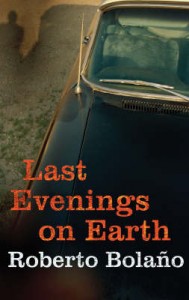 6) Last Evenings on Earth, by Roberto Bolano.
6) Last Evenings on Earth, by Roberto Bolano.
I first discovered Bolano about six years ago, when I was working in Foyles bookshop on Charing Cross Road and everyone suddenly started raving about The Savage Detectives. That was one hell of a big book, a novel I didn’t want to commit to until I had some inkling of whether I was going to like Bolano as a writer. I decided to start – as it’s useful to do – with his short stories, which is how I came to read Last Evenings on Earth.
I was outraged. I was of course fully committed to being a writer by then, publishing some stories of my own and trying to get to grips with the problems of writing a novel. Bolano’s stories seemed to disregard every single thing I thought I’d learned about how fiction should be written. They told as much as they showed, they went on and on about stuff and seemed completely unstructured. Most of them didn’t have plots.
But oh, these were wonderful stories! They were stories, the addictive, simply-must-hear-the-end kind of mad anecdotes some half pissed samizdat poet might get around to telling over the vodka one night during a pub lock-in. Yet they were also poetry, one limpid, amethyst sentence after another, tight with mystery and imagination and the immortal quest for human fulfilment and self expression. They were also sharply political, yet so non-didactic in their approach you often wouldn’t realise that until long afterwards.
Bolano was born to write. He was a natural, one of those writers in whom there seems to be no barrier between the mode of expression and what is expressed. Liquid intelligence.
I was hooked, bloody hooked and bloody jealous. God, that man could write.That man could even write about zombies. (No, I’m not joking – just check out his marvellous story ‘The Colonel’s Son’.)
Bolano’s writing is above all about freedom. Freedom to break the rules, freedom to become the kind of writer you want to be. Bolano wrote about writing, compulsively. He was a writer entirely devoted to his vocation, to recording his experience of it.
Bolano tells it like it is. He is inspiration.
